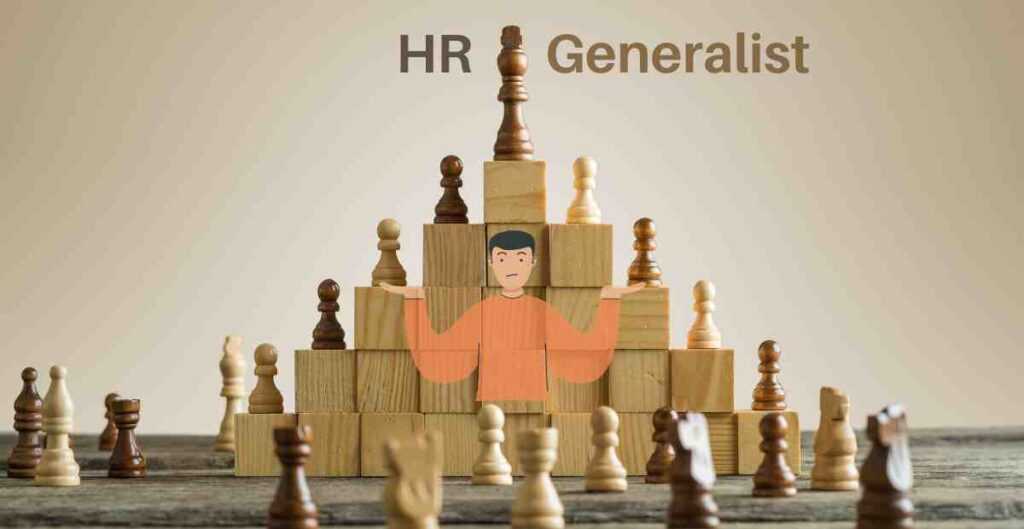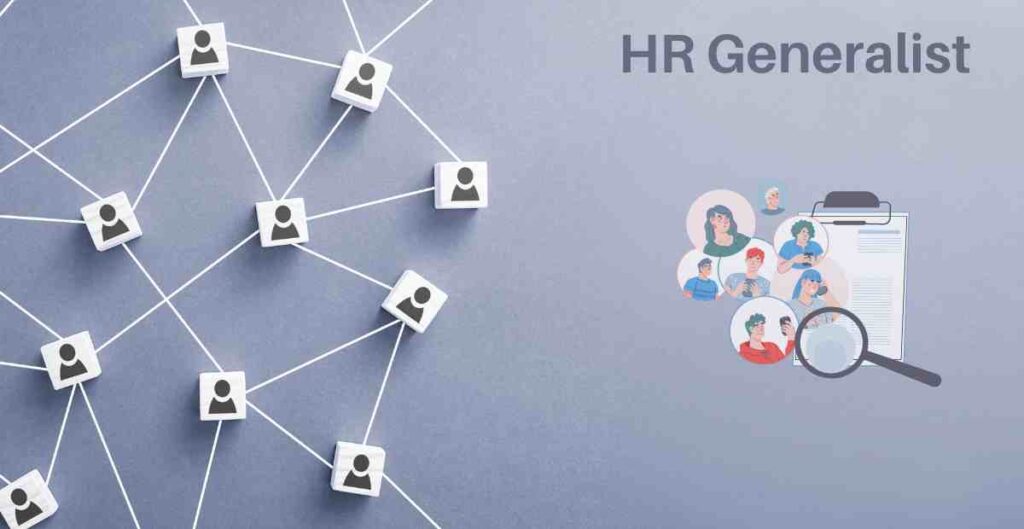Are you interested in a career in human resources? Do you want to learn about the diverse responsibilities and skills of an HR generalist? If yes, then this blog post is for you.
In this post, we will explain what an HR generalist is, what they do, what skills they need and how to become one. We will also share some tips and resources to help you succeed as an HR generalist. By the end of this post, you will have a clear idea of whether this career path is right for you and how to pursue it.
What is an HR Generalist?

An HR generalist is a human resources professional who has fundamental knowledge in a broad array of topics related to employee benefits, compensation, hiring, onboarding and evaluations. These professionals work in HR departments within corporations and work with HR directors to distribute information to department heads about new procedures, payroll changes or hiring needs. They are accountable for maintaining employee records and auditing employee performances. They can also enforce existing or new policies in a company.
HR generalists create and implement various policies that assist in the workflow of the company. The role of an HR generalist is considered a compelling career option for people who have good communication and employee management skills.
What are the Roles and Responsibilities of an HR Generalist?

The job of an HR generalist requires them to perform a diverse range of duties. Here are some of their common duties and responsibilities:
- Plan and implement employee policies
- Work with the management to develop organisational guidelines
- Administer human resources plans for all employees in the company
- Implement and administer compensation programs
- Draft job descriptions, job offers and termination letters
- Train and offer support to junior members of the HR team
- Perform some major activities related to the company’s workflow
- Monitor benefits administration and claims resolution
- Proactively find ways to improve policies and procedures
- Build and maintain relationships with recruiting agencies and seek their assistance when necessary
- Offer advice on employee retention and performance management
- Conduct recruiting, counselling and exit interviews when necessary
- Maintain employee records and make decisions to help achieve company goals
- Research new HR trends
What Skills Do You Need to Become an HR Generalist?

An HR generalist often uses these skills to perform their job well:
- Communication: Communicating effectively with different groups of people is an important skill for HR generalists. They are able to monitor their communication methods to cater to a variety of professional relationships.
- Organisational: Organising tasks, managing time and prioritising work are essential skills for HR generalists. They are able to handle multiple projects simultaneously and meet deadlines efficiently.
- Problem-solving: Solving problems creatively and analytically is another key skill for HR generalists. They are able to identify issues, find solutions and implement them effectively.
- Interpersonal: Interacting with people from different backgrounds, cultures and personalities is a crucial skill for HR generalists. They are able to build rapport, trust and respect with employees, managers and external partners.
- Technical: Using various software tools and applications is a necessary skill for HR generalists. They are able to use HR systems, databases, spreadsheets, word processors and presentation software proficiently.
- Legal: Understanding and complying with labour laws, regulations and ethical standards is a vital skill for HR generalists. They are able to ensure that the company follows the legal requirements and avoids any potential lawsuits or penalties.
How to Become an HR Generalist?
If you want to become an HR generalist, here are some steps you can follow:
- Earn a bachelor’s degree in human resources, business administration or a related field. This will help you gain the foundational knowledge and skills required for the role.
- Gain some relevant work experience in an HR department or a similar setting. This will help you develop your practical skills and learn from senior professionals.
- Pursue a certification or a master’s degree in human resources or a related field. This will help you enhance your credentials and demonstrate your expertise in this field.
- Apply for HR generalist positions in your preferred industry or sector. You can use online job boards, networking platforms or referrals to find suitable opportunities.
- Prepare your resume and cover letter highlighting your education, experience, skills and achievements as an HR professional. You can use some of the keywords mentioned in the job description to tailor your application.
- Ace the interview by showcasing your knowledge, skills and personality as an HR generalist. You can prepare some examples of your previous work, projects or achievements to demonstrate your value. You can also research the company and its culture to show your interest and fit.
Conclusion
An HR generalist is a versatile and valuable human resources professional who can handle a variety of tasks and responsibilities in an organisation. If you are interested in this career path, you need to have a relevant education, experience and skills to succeed. You also need to follow some steps to become an HR generalist and land your dream job.
If you are looking for a reliable and professional HR consultancy service, you can visit our website [yunicsolutions.com] and request a quote. We offer customised solutions for all your HR needs, from recruitment and training to payroll and compliance. We have a team of experienced and certified HR experts who can help you achieve your business goals and objectives. Contact us today and let us take care of your HR challenges.
FAQs
What is the difference between an HR generalist and an HR specialist?
An HR generalist is a human resources professional who has fundamental knowledge in a broad array of topics related to employee benefits, compensation, hiring, onboarding and evaluations. An HR specialist is a human resources professional who has in-depth knowledge and expertise in a specific area of human resources, such as recruitment, training, payroll or compliance.
How much does an HR generalist earn?
According to Indeed, the average salary for an HR generalist in India is ₹3,69,000 per year as of December 2022. However, the salary may vary depending on factors such as experience, education, location and industry.
What are the best practices for an HR generalist?
Some of the best practices for an HR generalist are:
- Stay updated on the latest HR trends, laws and regulations
- Communicate effectively and respectfully with employees, managers and external partners
- Organise tasks, manage time and prioritise work efficiently
- Solve problems creatively and analytically
- Use various software tools and applications proficiently
- Understand and comply with labour laws, regulations and ethical standards
- Seek feedback and opportunities for learning and development
How can I become a better HR generalist?
To become a better HR generalist, you can:
- Earn a bachelor’s degree in human resources, business administration or a related field
- Gain some relevant work experience in an HR department or a similar setting
- Pursue a certification or a master’s degree in human resources or a related field
- Apply for HR generalist positions in your preferred industry or sector
- Prepare your resume and cover letter highlighting your education, experience, skills and achievements as an HR professional
- Ace the interview by showcasing your knowledge, skills and personality as an HR generalist

